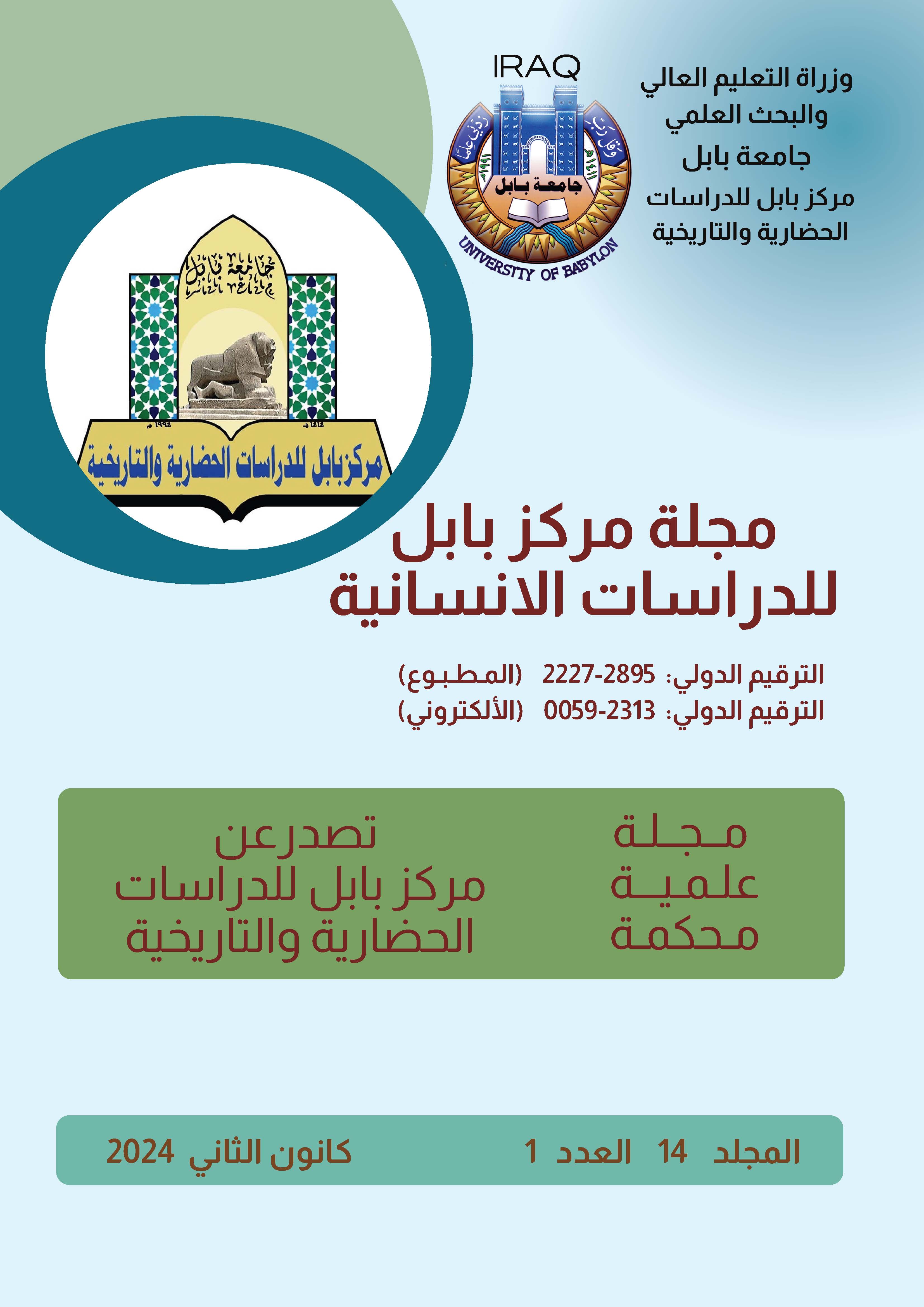النبر والتنغيم في مسند الامام الباقر (عليه السلام) دراسة أسلوبية
الكلمات المفتاحية:
القرآن الكريم، النبر، التنغيم ، الصوت، مسند الامام الباقر(ع)الملخص
- النبر هو نطق الصوت او المقطع الصوتي بوضوح نسبي اكثر من وضوح الاصوات التي حوله اذ ما قورن بها، وموضع النبر الغالب يكون في المقطع الذي قبل الاخير، وهو لا يكون على المقطع الاخير الا في حالة الوقف. وللنبر اهميته الوظيفية التي تخدم الجانب الصرفي والدلالي ، فعندما نقف على حرف مشدد او مقلقل او مغن فقد يساعدنا اما الى تفسير ظاهرة صرفية او التفريق بين معنيين. اما التنغيم فهو مصطلح يدل على ارتفاع الصوت وانخفاضه في الكلام وسمى ايضا موزسيقى الكلام وهو نتيجة لدرجة توتر الوترين الصوتتين مما يؤدي الى اختلاف الوقع السمعي ، فقد تكون الجملة استفهامية او تقريرية ، وقد يستغل التنغيم في الزجر او الرفض او الاستغراب او الموافقة. -يعد المستوى الصوتي من أهم المستويات التركيبية في النص؛ لوظيفته الكاشفة عن المعاني الدلالية الذي يحويها النص، فضلاً عن الإيقاع الذي يعمل على متعة المتلقي وإثارته لقراءة النص وفك شفراته وتفكيكها ليساهم في آلية تأويل النص، ونلحظ إن الإيقاع الجناسي المتشكل من مفردتين أو كثر في عدد الحروف وهيأتها وحركاتها، يولد إيقاعاً صوتياً مائزاً في النص، وهذا لا يخلو من وظيفية إبلاغية في النص.
المراجع
التنزيلات
منشور
2024-01-23
إصدار
القسم
Articles







